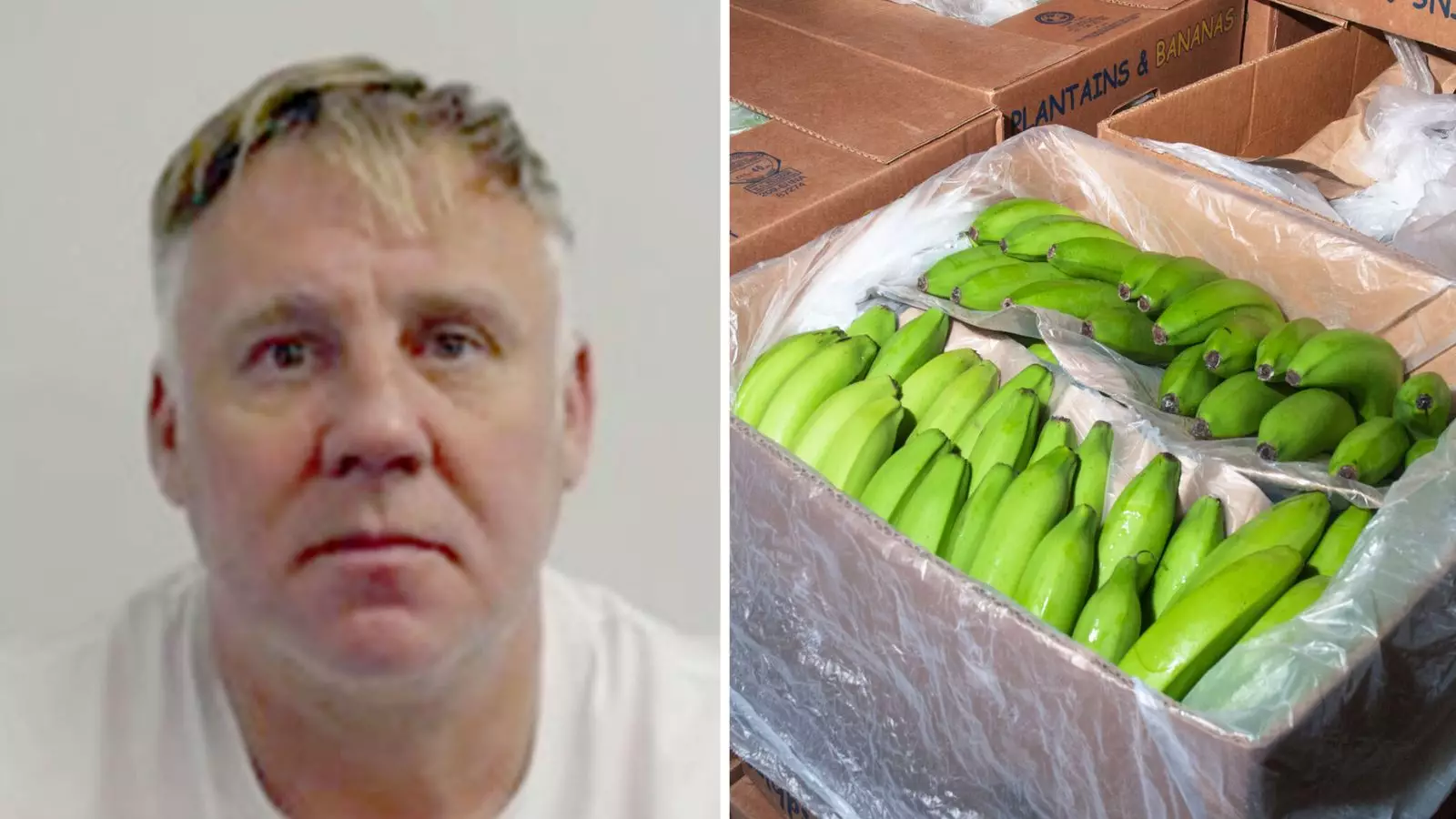The recent conviction of Jamie Stevenson, a notorious figure in the UK’s organized crime landscape, marks a watershed moment in the battle against drug trafficking. Known infamously as the “Iceman,” Stevenson orchestrated a massive scheme to transport nearly a tonne of cocaine from South America to Scotland, hidden within a shipment of bananas. This ambitious plot, stretching across international borders, was brought to a halt in September 2020 when Border Force teams intercepted the shipment in Dover. The scale of the operation—comprising 952 blocks of cocaine packed in 119 foil packages and estimated to be worth around £100 million—portrays both the audacity of the criminals involved and the proactive stance of law enforcement agencies like Police Scotland and the National Crime Agency (NCA).
Stevenson’s coordinated efforts to import cocaine were part of a larger syndicate engaged in orchestrated crime activities, reflecting how deeply entrenched and sophisticated such networks can be. The focus of this investigation, dubbed Operation Pepperoni, wasn’t merely a random act of crime; it was interconnected with Operation Venetic, highlighting an extensive web of criminal enterprises that law enforcement had managed to infiltrate by exploiting encrypted communications through the EncroChat platform. This situation underscores the technological warfare both sides face.
At 59 years old, Jamie Stevenson’s past is as complicated as it is notorious. Previously imprisoned in 2007 for money laundering, Stevenson’s criminal career has persisted for decades, evolving alongside the changing landscape of law enforcement tactics. His modus operandi closely mirrors the themes popularized in television dramas like “The Sopranos,” where organized crime figures navigate the dangerous waters of their illicit businesses. Graeme Pearson, the former head of the Scottish Crime and Drug Enforcement Agency, drew parallels between Stevenson’s methods and Tony Soprano’s, suggesting that this was not just a casual criminal; he was a significant player orchestrating a substantial criminal enterprise.
The extent of his criminal activities became apparent once authorities discovered a suspected etizolam pill factory in Kent in June 2020. This prompted Stevenson to flee the country, illustrating an instinctual survival trait often associated with career criminals who maintain a dual life amidst illegal ventures.
Stevenson’s eventual apprehension in the Netherlands during a jogging session serves as a stark reminder that no matter how well crafted a plan may be, evasion is often a fleeting priority for criminals. Upon returning to the UK, the High Court of Glasgow became the stage where Stevenson and other co-defendants faced the repercussions of their actions. His admission of guilt regarding the drug smuggling and involvement in organized crime only solidified the narrative of a man who lived dangerously yet recklessly.
Co-defendant Paul Bowes, who played a part in the criminal manufacturing of etizolam—often referred to as street valium—was sentenced to six years in prison. Similarly, other accomplices such as David Bilsland, Gerard Carbin, Ryan McPhee, and Lloyd Cross received varying sentences for their roles, illuminating the comprehensiveness of this drug operation. The sentences convey an overarching message to those engaged in similar criminal activities: the weight of law enforcement efforts is considerable, and the consequences are dire.
Stevenson’s conviction and the subsequent crackdown on his cohorts signal a turning point in the fight against organized crime in the UK. These operations not only remove dangerous individuals from the streets but fundamentally disrupt the marketplaces of illegal drugs that perpetuate dependency and societal issues. Each legal victory is a reminder of the relentless efforts made by law enforcement to dismantle organized crime networks.
As the UK continues to grapple with the challenges of drug-related crime, the spiraling costs to health care, safety, and social welfare remain a central concern. It’s imperative to counter these organized crime syndicates that tear through communities, more so now than ever with the technological advances that make illicit activities more discrete. Overall, the conviction of the “Iceman” is a chapter in an ongoing saga; one that highlights the darker corners of humanity and the continuous battle between crime and society.

Leave a Reply